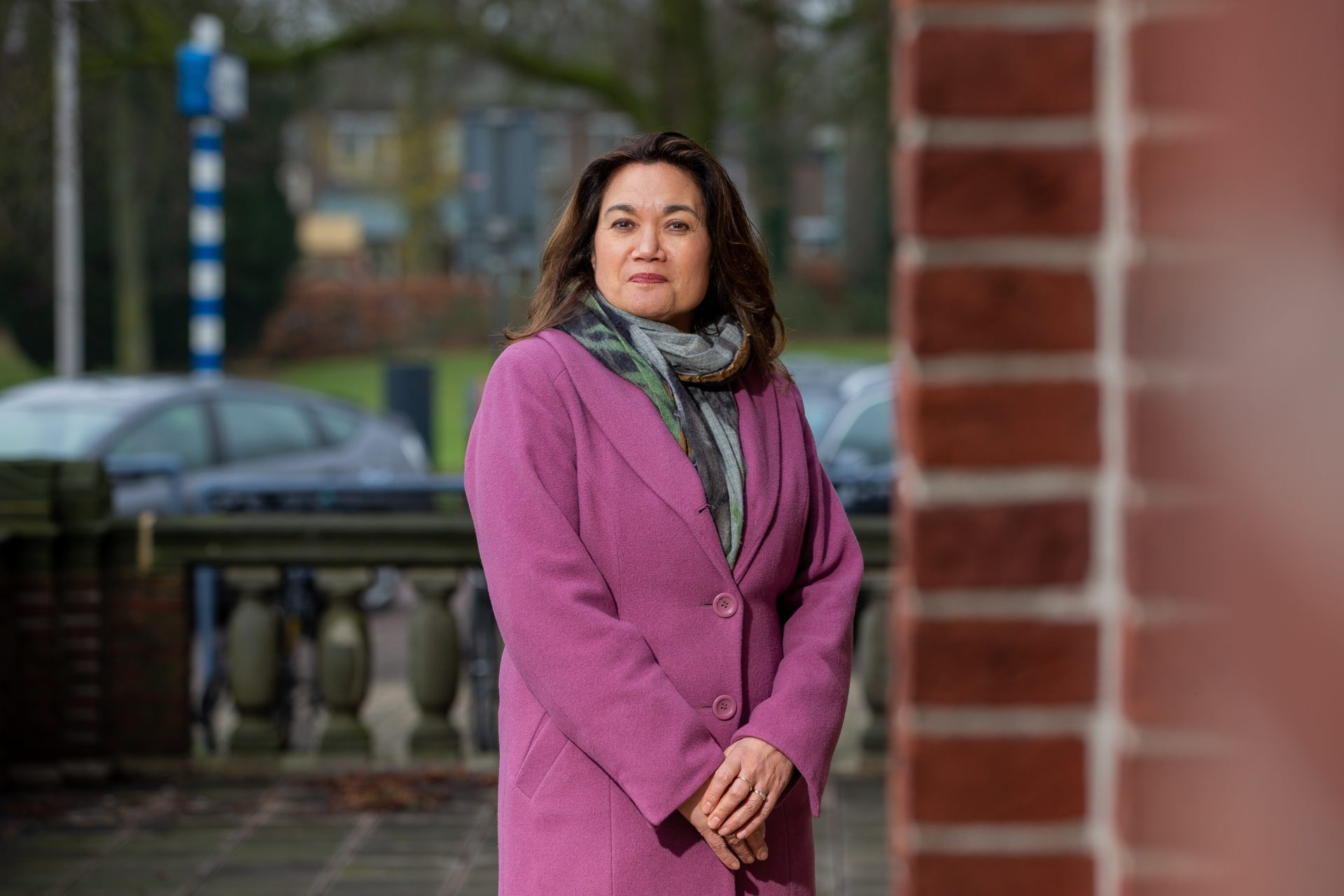Ombudsperson takes stock: ‘Social safety benefits from transparency’
-
 Foto: Pixabay
Foto: Pixabay
In her first year as ombudsperson, Nancy Viellevoye met with great dissatisfaction with the lack of transparency from supervisors and administrators. This does not promote social safety, she concludes. Moreover, she sees how groups come into conflict with each other when an organisation doesn't do enough to actually guide them into dialogue, as was the case at the Faculty of Philosophy, Theology and Religious Studies.
Nancy Viellevoye does not encounter the nicest side of the University in her work. ‘There are also lots of things that do go well,’ says the ombudsperson almost apologetically. But since employees don’t contact her to share their success stories, she’s the right person to hold up a mirror to the University when it comes to disrupted working relationships and social safety.
And that is precisely what the lawyer did in her annual report for the year 2022 – the first year that Radboud University had an ombudsperson. This report reveals that 95 employees filed a report to Viellevoye last year (see box). Most of the these concerned undesirable behaviour, a conflict with the employee’s supervisor, or teamwork problems.
‘Employees push themselves and each other to the limit’
As an independent ‘complaints office’, Viellevoye can take a number of follow-up actions: she can provide the notifiers with advice, but also mediate between employees, urge a Faculty Board or the Executive Board to initiate an investigation, or launch her own investigation.
Most of the time – in 77 percent of cases – this stopped at providing advice, as the annual report shows. One of the reasons is that many notifiers do not want their complaint to reach colleagues – read: their supervisor – because they fear for their career prospects. PhD candidates in particular are in an extremely dependent position.
Champions League
In her first year as ombudsperson, Viellevoye got to know the University as a place with a strong focus on competition and excellence, she says in her office on Thomas van Aquinostraat. ‘You see this in other sectors too, of course. On the TV programme De Wereld Draait Door, they said that it was like “playing in the Champions League”. I suspect that many people feel the same way about their work at the University.’ The consequence is that employees push themselves and their colleagues to the limit.
As on De Wereld Draait Door, this may open the door to transgressive behaviour. And as in the talk show, it is often the employees in the lower ranks who pay the price, by experiencing too little support from their supervisor, or becoming victims of abuse of power. Viellevoye: ‘There are people in certain positions who are incredibly good in their field, but that doesn’t mean they have good leadership skills.’
Philosophy
In the ombudsperson’s annual report, the Faculty of Philosophy, Theology and Religious Studies (FFTR) stands out in terms of number of reports (17 reports, 18% of the total, see box). In 2020, Nijmegen’s smallest faculty attracted a lot of attention when Professor and intended Dean Paul Bakker was accused of ‘inappropriate conduct’. It took almost three years to get some clarity concerning Bakker’s future: this week, the University finally announced that he would be allowed to stay on as a professor, but he would no longer teach.
According to Viellevoye, who also runs her own mediation agency in addition to her work for the University, the many reports from the Faculty of Philosophy, Theology and Religious Studies indicate continued unrest in the workplace. ‘Despite everything that has been done there in terms of social safety, things are still not going well. A cultural investigation has taken place and working groups have been created, but groups remain in conflict. This polarisation, which I incidentally also see in other places at the University, is really strong there.’
‘Everyone wants to move on, close the case, and start anew’
The University should do more to engage groups in dialogue, Viellevoye advises. She says that although all sorts of meetings have been organised, they tend to only attract like-minded people. ‘Clearly, these are also very difficult and scary conversations. But I do think they are needed. Otherwise, everyone will just get stuck feeling righteous.’
When situations are allowed to go on for too long without clarity, it harms all involved, the ombudsperson argues. The Board could have communicated more often on certain issues. ‘Say that you’re working on it, that the issue has your attention. That alone would already have helped.’ But ultimately, speed also matters. ‘Everyone wants to move on, close the case, and start anew.’
Common thread
Viellevoye sees a lack of openness and transparency on the part of supervisors as a common thread in the interviews she conducted with notifiers in 2022. She writes in her annual report: ‘The situations are complex due to legal constraints and the differing interests of those involved. However, the missing information is then filled in by the parties on various sides, thus reinforcing the existing polarisation.’
She does not mean to say that every detail must be shared. Clearly, the University has a duty to protect the privacy of whistleblowers and notifiers, Viellevoye argues. But the interests of the organisation as a whole must also be taken into account. And this means that communication with the outside world is still required sometimes, where possible. ‘Otherwise, you are only fuelling feelings of lack of safety.’ Some notifiers complained to the ombudsperson that the University allowed a “trial by media”, others spoke of a “culture of silence”.
The lessons of Hamer
In May, almost simultaneously with the ombudsperson’s first annual report, government commissioner Mariëtte Hamer released a handbook for organisations on how to deal with reports of sexually transgressive behaviour. A key lesson from Hamer: organisations must be prepared for abuses to continue to surface so they are not caught off guard and know what to do.
‘An external investigation upsets the organisation considerably’
According to Hamer, too often organisations immediately reach for an external investigation after a case of transgressive or inappropriate behaviour comes to light. ‘After The Voice, you saw quite a few examples from politics, the media world and beyond where there was a reflex to immediately launch a large-scale investigation: this shows that organisations would rather delegate this’, Hamer reported in de Volkskrant.
The ombudsperson thinks Radboud University should also be more careful in this respect. ‘An external investigation upsets the organisation considerably. It immediately makes things really big. A person initiating an external investigation should have a very clear idea of what exactly they want to have investigated, and whether an investigation really adds anything.’ According to Viellevoye, this is not always the case.
Legal corner
In this respect, Viellevoye says that the University is therefore a ‘learning organisation’, as Vice-President Agnes Muskens said earlier this week in Vox. Viellevoye: ‘We don’t know very well yet how to deal with such cases. As a result, administrators sometimes have a knee-jerk reaction and announce an external investigation.’
This pushes conflicts into the legal corner, Viellevoye observes, adding to their complexity. ‘Employers have their obligations to their employees, and they face conflicting interests. By announcing an investigation, managers show that they take the problem seriously, but this by no means always improves social safety. When an investigation does take place, the outcome of which is then also kept secret, it gives the impression that something serious is going on. This can create a feeling of lack of safety.’
The ombudsperson says that in her position as impartial mediator, she could be called in more often to prevent escalation. ‘Sometimes an external investigation is unavoidable, but if you can resolve conflicts internally, there is less harm to the people involved.’
This realisation is starting to dawn on the Nijmegen campus. ‘It takes time. Of course, my position is new – it is not yet clear to everyone what they can contact me for. It’s a matter of building trust.’
95 Reports
In 2022, the ombudsperson received 95 reports. Seventeen reports came from the Faculty of Philosophy, Theology and Religious Studies and 12 from the Faculty of Social Sciences, where an investigation was also taking place into alleged inappropriate behaviour by a member of staff. There were 11 reports from the Faculty of Law, 11 from the Nijmegen School of Management, and 10 from Radboud Services (excluding the Sports Centre, HR and ILS).
Nineteen reports concerned undesirable behaviour, 13 a conflict with a supervisor, 12 teamwork problems, and 11 unpleasant treatment. Of the 95 notifiers, 57 were women and 35 men. In one anonymous report, gender was not disclosed. Of the notifiers, 78 had Dutch nationality, and 17 another nationality. Fifty-nine notifiers belonged to the academic staff (including 11 PhD candidates), and 33 to the support staff. Two cases involved former employees.




